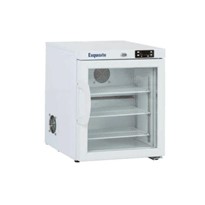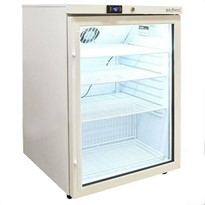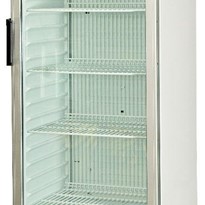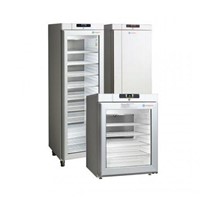Domestic refrigerators have numerous disadvantages when it comes to storing vaccines, some of which are very serious, including:
- They are frequently incapable of complying with the 2-8°C temperature range required for optimal vaccine storage. If the temperature drops to 0°C the vaccines can be frozen rendering them impotent. Elevated temperatures can also make the vaccines impotent. This could lead to patients been given vaccines that won’t protect them, and/or you having to discard thousands of dollars worth of vaccines.
- Cyclic defrost refrigerators are not recommended as they have wide temperature fluctuations and heating cycles.
- Bar refrigerators are strongly not recommended because of the risk of freezing, wide temperature fluctuations and susceptibility to ambient temperature.
- Most domestic refrigerators are not fan forced and have poor temperature recovery after the door has been opened.
- Vaccine refrigerators closely control temperatures and will alarm if the temperature goes out of specifications. They also record minimum and maximum temperatures.
- Vaccine refrigerators all have locks.
Purpose built vaccine refrigerators offer numerous advantages including:
- Management of a purpose-built vaccine refrigerator is simpler than for a domestic fridge.
- Temperatures are maintained in the 2°C to 8°C range. This minimises the risk of vaccines being stored outside the recommended temperature range and becoming impotent.
- Vaccine refrigerators have good temperature recovery after a door has been opened.
- There is more usable space for storing vaccines as there is no need to stack low drawers and the doors with ice/gel packs and water/salt water bottles as is recommended for domestic fridges.
- Other temperature sensitive medical products such pharmaceuticals may be stored in a vaccine refrigerator.
- External temperature display with minimum and maximum values aids compliance.
- A vaccine refrigerator will alarm when minimum or maximum temperatures are breached.
- A vaccine refrigerator will automatically defrost, whilst maintaining a 2°C to 8°C temperature range.
- Many vaccine refrigerators have a lockable door.
- Vaccine refrigerators are available with glass doors.
- A vaccine refrigerator will meet medical accreditation requirements.
- The Pharmacy Guild requires accredited pharmacists to have purpose built vaccine refrigerator. All single door pharmacy/vaccine refrigerators sold by ENLAKE meet their Quality Care Pharmacy Program. Larger fridges are built for hospital use but may be used in a pharmacy after testing.



-160x160-state_article-rel-cat.png)


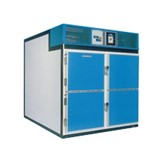












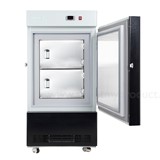



-205x205.jpg)
